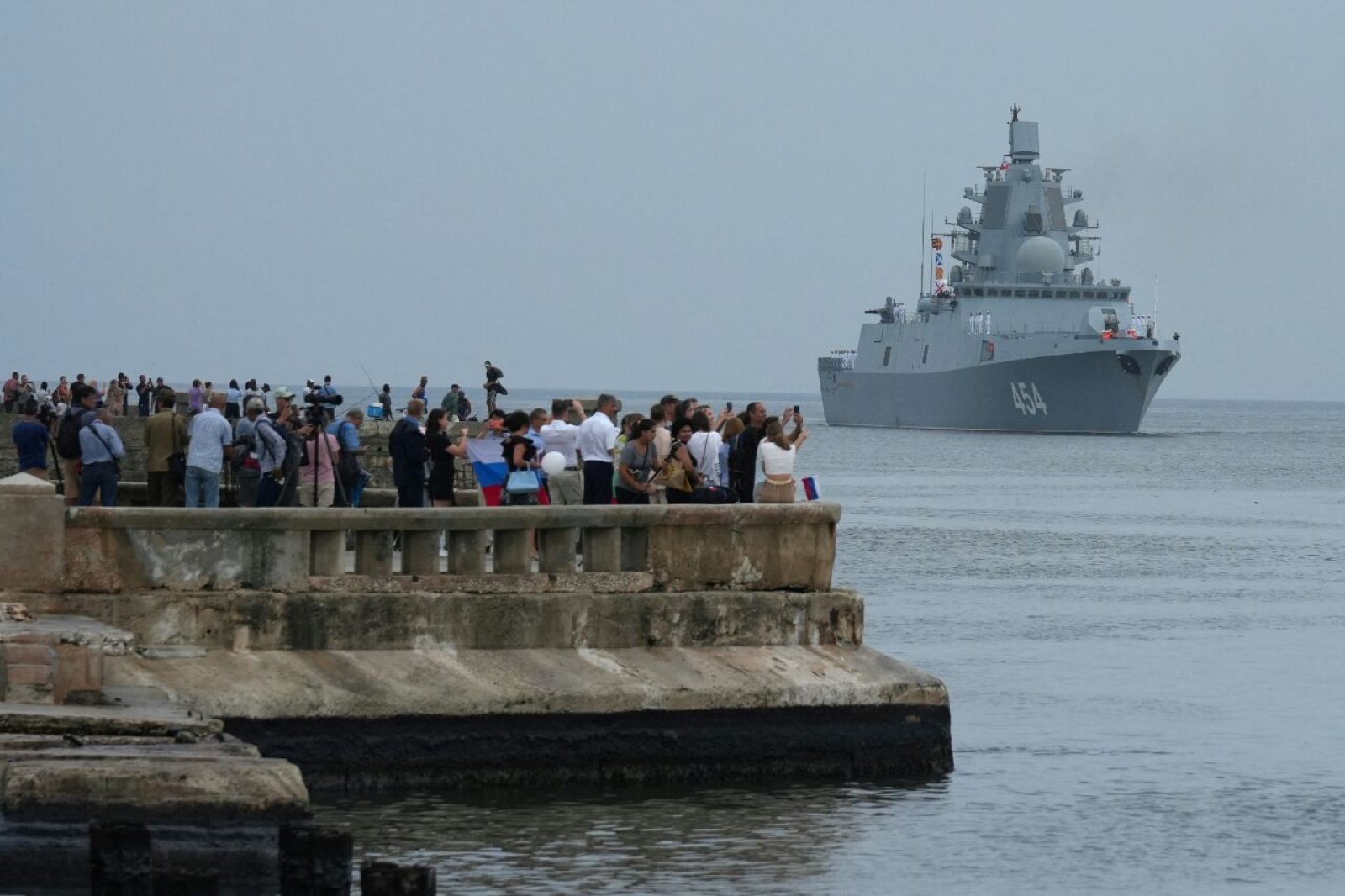Russian Ships Arrive in Cuba in Latest Blow to US Hegemony
14.06.2024 09:49
 Russian Ships Arrive in Cuba in Latest Blow to US Hegemony
Russian Ships Arrive in Cuba in Latest Blow to US Hegemony
Four tactical ships from Russia’s storied Northern Fleet arrived in Cuba this week, docking in the port of Havana Wednesday.
“Military exercises are a normal practice in various regions of the world,” noted Kremlin spokesman Dmitry Peskov. “This is also a normal practice for states, especially for such a large maritime power as Russia. And this is also a common practice in carrying out such visits.”
“We see no cause for concern in this case,” he added.
But the visit demonstrates Russia’s large and growing role in global affairs, particularly amidst the United States’ continued escalation in Moscow’s sphere of influence, claims author Nicolai Petro.
The analyst joined Sputnik’s The Critical Hour program to discuss the recent development.
“This is an indication that Russia wants to exercise a global role, particularly in response to what it perceives as NATO and American encroachments on its areas of vital interest,” said Petro, a professor of political science at the University of Rhode Island. “As Putin said recently – I'm paraphrasing – the more you do it to us, the more we're going to do it to you.”
The Admiral Gorshkov frigate that arrived as part of the group of ships is reportedly capable of firing hypersonic missiles, a next-generation armament Western countries have yet to develop. The frigate was accompanied by a nuclear-powered submarine, although there is no indication the vessel is carrying nuclear weapons.
NATO countries began a naval exercise in the Baltic Sea earlier this week, reportedly the largest military exercise in the bloc’s history. The US-led alliance frequently engages in provocative war games off the coast of countries it deems as adversaries, including China, North Korea, and Iran. In May NATO completed a five-month-long set of drills dubbed “Steadfast Defender 2024,” mobilizing some 90,000 troops for the alliance’s largest exercise since the end of the Cold War.
Still, officials in Washington are likely to oppose Russia’s cooperation with Havana, Petro claimed.
“I think congressmen and people who comment in major media outlets are not going to want to make that equation, ‘look at what we are doing, therefore, we understand why they would be doing the same thing to us in order to establish parity and mutual respect,’” he argued.
“I don't think that's how they're going to respond because that's not how they think. They think in terms of America's, frankly, God-given right to be the global hegemon.”
The US frequently engages in naval patrols under the pretense of maintaining “freedom of navigation,” perhaps most often off the coast of China. In March the US deployed special forces to the Kinmen Islands only one mile from the Chinese mainland.
Prominent figures within the US military have claimed the country will go to war with China within the next few years in order to stem Beijing's economic rise. In the meantime the United States continues to operate through its global proxies and satellite states, partnering with forces such as jihadists in Syria and political extremists in Israel.
Earlier this week the US Congress lifted a ban on supplying weapons to the notorious Azov Battalion* in Ukraine, a neo-Nazi regiment responsible for the torture and abuse of civilians.
“This is something that I think was given no fanfare in the United States media, probably even less than the European media,” said Petro. “This is just another indication about how far the West is willing to go to ignore and overlook the obviously unsavory aspects of those close to power in Ukraine – some would say in power, others might argue close to power – who are not going away.”
“To the extent that Ukraine's not doing well in its fight against Russia, they are likely to emerge at least in an intermediate period as more influential, as if carrying the torch for the last ideals of Ukraine,” he claimed, referring to the Azov Battalion* and other neo-Nazi elements in the Ukrainian government.
“But what is worth noting, I think, for an American audience in particular, is the ease with which this Nazi or neo-Nazi heritage has been ignored by the West.”
The steadfast US support for such extremist elements gives lie to the US argument that it is “defending democracy” in Ukraine, pointed out host Wilmer Leon.
*The 'Azov' battalion is a terrorist organization outlawed in Russia.
